Autism Spectrum Disorder (ASD) is a neurodevelopmental condition that affects individuals in various ways, influencing social interactions, communication, and behavior.
While global awareness of autism has been on the rise, African nations, including Nigeria, continue to face unique challenges in understanding and treating the condition.
Traditional beliefs and cultural practices significantly impact how autism is perceived and addressed across many African societies.
This article explores how traditional views shape the experience of autism in African communities, the struggles faced by families, and the urgent need for education and cultural sensitivity in addressing this issue.
The Influence of Traditional Beliefs on Autism Perception
In many African societies, traditional beliefs play a pivotal role in shaping how health and wellness are understood. When it comes to disabilities, especially developmental ones like autism, these beliefs often diverge from scientific explanations.
Many cultures still view autism through spiritual or supernatural lenses, where children exhibiting signs of ASD may be seen as cursed, possessed, or the result of witchcraft.
In a publication by Elias(2024) which highlights their Holistic Approach to Autism Therapy, the article titled “Cultural Views on Autism” explores how diverse cultural beliefs shape perceptions and diagnoses of autism around the world. Sadly, majority of these views are difficult to change by the people. However, with ongoing awareness and respectful approaches in educating the traditional leaders and the society, the narratives about ASD will begin to change over time .
In Nigeria, for example, many families often seek guidance from religious leaders, traditional healers, or elders who interpret autism as an affliction caused by spiritual forces rather than a medical condition.
This belief may result in harmful practices, such as herbal treatments, prayers, or rituals, which may delay proper diagnosis and appropriate care for the child. While such practices are rooted in cultural norms, they often contribute to a lack of understanding and exacerbate the stigma surrounding autism.
As a result, children with autism may face discrimination or social isolation, both within their families and communities.
These cultural perceptions can be particularly challenging for parents who are trying to navigate a health system that may not yet recognize or address autism in a culturally competent manner.
They may feel torn between respecting traditional beliefs and seeking modern medical treatment, leaving them unsure of how best to support their child.
Unfortunately, the lack of accurate knowledge about autism in both rural and urban settings often means that the condition remains misunderstood, leading to unnecessary suffering for affected families.
The Challenges of Traditional Views
One of the most significant challenges families face is the social stigma surrounding autism. In some African communities, any form of deviation from the norm, including autism, is seen as an embarrassment to the family.
The child may be labeled as “abnormal,” and the family may be blamed for not adhering to cultural norms or religious practices. This stigma can isolate the child and the family, making it difficult for them to access support, both emotionally and practically.
A notable example is the Swahili community on the Kenyan coast, where cultural perceptions have been reported to negatively impact awareness of autism. This issue is further compounded by a lack of government guidance in providing adequate diagnostic and educational support.
These insights are discussed in the publication “Perceptions of Autism Spectrum Disorder Among the Swahili Community on the Kenyan Coast”, available on ScienceDirect.com for those interested in exploring the topic further.
Another significant problem with traditional beliefs is the reliance on unproven remedies. While some traditional practices may have value in promoting overall health, they are not scientifically validated for treating autism.
For example, children may undergo painful rituals or consume herbal concoctions in an attempt to “cure” their condition, which not only diverts resources away from more effective treatments but can also pose physical and psychological risks.
Adeola Dorcas Folorunso’s Advocacy and Work
Amidst these challenges, there are African professionals who are working tirelessly to bridge the gap between traditional beliefs and modern medical approaches to autism care.
One such individual is Adeola Dorcas Folorunso, a Nigerian-Canadian healthcare professional whose career and advocacy work focus on improving the quality of life for vulnerable populations, including children with autism.
Throughout her career and as an Autism Spectrum Clinical Specialist (ASDCS), Adeola has advocated culturally sensitive healthcare practices, especially in the context of maternal and child health. She is particularly passionate about addressing the mental health challenges faced by vulnerable populations, including children with ASD.
In 2024, Adeola launched an outreach program in Iwo, Osun State, Nigeria, to provide dental care to children with autism, highlighting one of the often-overlooked issues faced by children on the spectrum.
The program offered free dental cleaning services to over 150 children with autism, addressing the sensory sensitivity that many of these children experience, which can make routine dental visits particularly challenging.
This initiative was groundbreaking in that it not only provided crucial medical care but also raised awareness about autism in an underserved area.
Adeola’s work is a proof of the power of community-based health interventions that respect local culture while addressing critical health needs. By incorporating education, accessibility, and cultural sensitivity into her programs, she has made strides in improving the lives of families affected by autism in Nigeria.
Through her organization, Matermental, Adeola continues to advocate for policies and initiatives that tackle autism with compassion, respect, and a deep understanding of local customs and practices.
The Way Forward
To move forward, we must prioritize education, collaboration, and policy development. Training healthcare providers to work in culturally competent ways is essential for delivering effective autism care.
Additionally, fostering partnerships between traditional healers, religious leaders, and healthcare professionals can create a more holistic and community-oriented approach to autism treatment.
Governments in African countries need to invest in autism-specific healthcare services, including diagnosis, therapy, and support programs, while ensuring that these services are accessible and culturally appropriate.
A national commitment to addressing autism, alongside other developmental disorders, will help reduce the gaps in healthcare access and improve the lives of affected individuals.
Conclusion
The intersection of traditional beliefs and autism in African cultures presents both challenges and opportunities. While misconceptions and stigma still exist, advocates like Adeola Folorunso are leading the charge to change attitudes and improve access to care for children with autism.
By fostering education, cultural sensitivity, and community collaboration, it is possible to create an environment where children with autism are understood, supported, and given the tools they need to thrive.
Reference
- Elias, M.(2024). Cultural Views on Autism . Available from : https://www.discoveryaba.com/aba-therapy/cultural-views-on-autism.
- Greer, J.M.H, Sood, S.S.M and Metcalfe,D.R.(2022). Perceptions of autism spectrum disorder among the Swahili community on the Kenyan coast. ScienceDirect , Vol 131. Available from : https://www.sciencedirect.com/science/article/pii/S0891422222002001


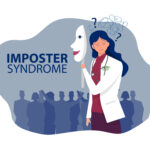





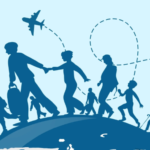




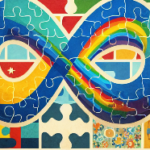
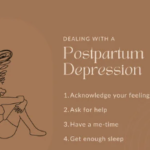



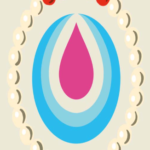
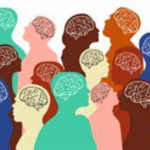
One Response
Brilliant writing!